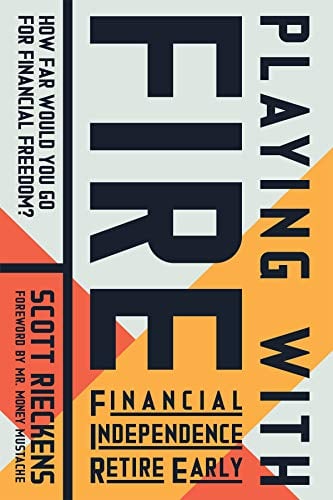"Why You Should Consider Hiring a Certified Financial Planner (CFP®) for Your Financial Needs"
Certified Financial Planners (CFP®) are professional financial advisors who have met certain education, experience, and ethical requirements set by...

FIRE, the acronym for Financial Independence, Retire Early, connects with many people’s dream of “firing” their boss. Do you know how long it’ll be before you reach that point?
On the “Four Pillar Freedom” blog, “Zach” shared his Early Retirement Grid, showing how many years you’d need to reach your FIRE point. He based his grid on current after-tax annual income and annual spending. The assumptions behind his results include:
I love the idea behind this tool, but it suffers from several shortcomings:
To address the above shortcomings, I decided to create my own tool. This tool estimates the years until your FIRE point for a given savings rate and income replacement rate in retirement. I too assumed $0 saved for retirement, but made a few other adjustments to help improve accuracy.
So, without further ado, here it is…
The above grid shows how long it will take you to reach FIRE, depending on your retirement savings rate and your desired retirement income replacement rate.
Let’s walk through an example: no matter your income in dollars, if you’re saving 30% toward retirement, you’d look at the column with 30% in the lowest, white cell. If you want to replace 70% of income, you’d go up that column until you reach the row with 70% in its leftmost, white cell. This shows you’ll need 29.8 years to replace 70% of current income. Move three cells up and you’ll see it will take 32 years to replace 82% of your income.
If you’re 22, want to replace your non-savings income, and save only 6%, you won’t likely be able to retire much before age 82!
If you save 10% of income and plan to replace 90% of income, you’ll need 50.5 years to retire! Increase savings to 30% and reduce retirement income to 70%, and you’ll reach FIRE in 29.8 years. That saves you more than 20 years of work! Save half your income and live on the same after-savings income in retirement and you’ll reach FIRE in 18.9 years. That saves you another decade of work!
As mentioned above, save 30% of income and plan on the same 70% you spend now, and you’ll need 29.8 years to reach FIRE. Work 7.4% or 2.2 years longer, and you can replace 82% of your income. That’s a 17%+ increase in your retirement income!
Say you’re 22, plan to replace all your non-savings income, and want to retire by 67. You’ll need to save over 12% of your income for retirement.
Say your employer(s) match(es) your savings dollar for dollar up to 6%. Say you then use that to reduce your own contributions (relative to the previous scenario) to 6%. Your replacement rate will need to be 94%, which pushes back your retirement more than 3 years, past age 70. On the other hand, continue saving 12% plus the 6% match, and you can expect to retire before age 63.
Say the Social Security Administration’s current estimate of your benefits promises to replace 25% of your income. Let’s then admit that at best, they will deliver 80% of that, or 20% of your income. If you start with 30% savings and 70% replacement, Social Security will shave 4.6 years off your FIRE time.
The grid above lets you estimate how long you need to reach your own personal FIRE moment, depending on how aggressively you save and how much income you’ll want in retirement. Using percentages lets you to use the tool no matter how high or low your income. The above examples walk through the impacts of low savings, increased savings, working longer, employer match, and Social Security benefits.
Disclaimer: This article is intended for informational purposes only, and should not be considered financial advice. Before making major financial decisions, please speak with us or another qualified professional for guidance. The original version of this article first appeared on Wealthtender written by Opher Ganel.
.png)
Certified Financial Planners (CFP®) are professional financial advisors who have met certain education, experience, and ethical requirements set by...
%20(3).png)
Are you tired of living paycheck to paycheck? Do you want to achieve your financial goals but don't know where to start? Financial planning is the...
%20(1).png)
As a young professional, it's important to start thinking about your financial goals early on in your career. By setting and working towards...